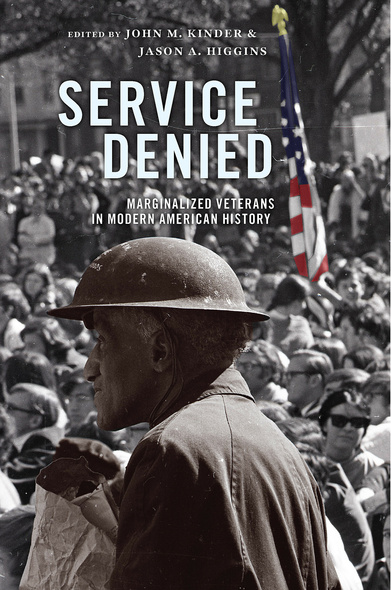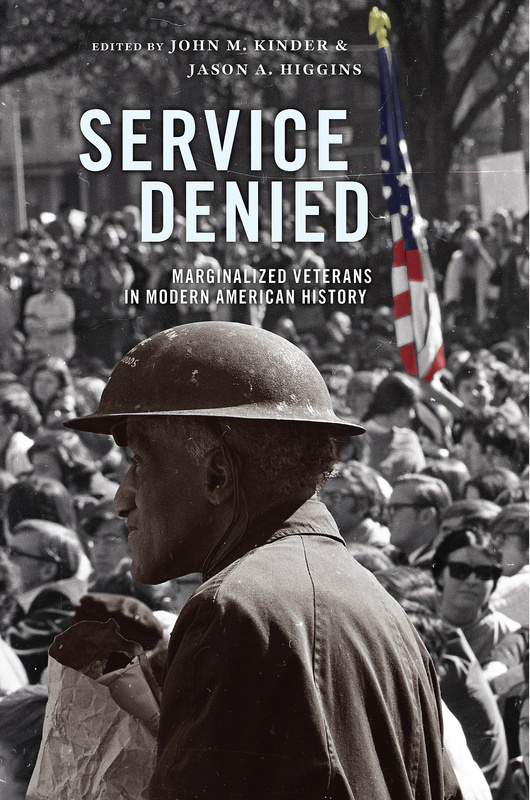
Service Denied
Marginalized Veterans in Modern American History
Wartime military service is held up as a marker of civic duty and patriotism, yet the rewards of veteran status have never been equally distributed. Certain groups of military veterans—women, people of color, LGBTQ people, and former service members with stigmatizing conditions, “bad paper” discharges, or criminal records—have been left out of official histories, excised from national consciousness, and denied state recognition and military benefits.
Chronicling the untold stories of marginalized veterans in the twentieth and twenty-first centuries, Service Denied uncovers the generational divides, cultural stigmas, and discriminatory policies that affected veterans during and after their military service. Together, the chapters in this collection recast veterans beyond the archetype, inspiring an innovative model for veterans studies that encourages an intersectional and interdisciplinary analysis of veterans history. In addition to contributions from the volume editors, this collection features scholarship by Barbara Gannon, Robert Jefferson, Evan P. Sullivan, Steven Rosales, Heather Marie Stur, Juan Coronado, Kara Dixon Vuic, John Worsencroft, and David Kieran.
Using cutting-edge scholarship, this collection presents new insights on historically marginalized groups. Service Denied makes invaluable contributions to the fields of military history, African American history, Latinx history, women’s history, and queer history.’—Steve Estes, author of Ask and Tell: Gay and Lesbian Veterans Speak Out
‘This volume offers a bird’s eye view of major questions and issues in veterans studies, and a valuable intervention: those who study and write about former service members, the authors presciently declare, must consider how 'intersectional systems of oppression’ shape experiences in and beyond the military.’—Jessica L. Adler, author of Burdens of War: Creating the United States Veterans Health System
JOHN M. KINDER is associate professor of history and director of the American Studies Program at Oklahoma State University.
JASON A. HIGGINS is a postdoctoral fellow in digital humanities and oral history at Virginia Tech.





